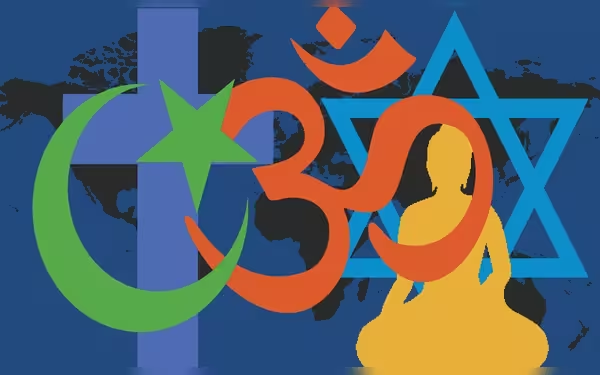Wednesday, February 5, 2025 08:43 AM
Religious Nationalism in Pakistan: Identity and Governance Challenges
- Religious nationalism shapes Pakistan's identity and political landscape.
- Islamic nationalism evolved amid economic challenges and ethnic tensions.
- Saudi influence alters national identity, prioritizing religious over national affiliation.
 Image Credits: dawn
Image Credits: dawnExplore the rise of religious nationalism in Pakistan and its impact on identity and governance.
The rise of religious nationalism has become a significant topic of discussion in recent years, particularly in the context of various global movements. The term "Christian nationalism" has gained traction, especially in the United States, but similar trends can be observed in other parts of the world, including Pakistan. Understanding the roots and implications of religious nationalism is crucial, as it shapes the identity and political landscape of nations.
Historically, nationalism was seen as a secular idea, one that aimed to unify people under a common identity, often replacing religious symbols with national ones. This shift was largely a response to the brutal conflicts between different Christian sects in Europe, which necessitated a more organized approach to governance and identity. The concept of the nation-state emerged, borrowing elements from organized religions to add a sacred dimension to nationalism. This process, known as "sacralisation," framed nationalism as a form of civic religion.
As the 20th century progressed, religious nationalism began to take root in various regions, particularly in Muslim-majority countries. The 1970s marked a turning point, as Islamic nationalism started to replace more secular forms of nationalism. This shift was not limited to Islam; similar movements emerged in other religions, including Hindu nationalism in India and Christian nationalism in the West. Religious nationalism posits that nations can only thrive under a divine purpose, which should guide their economic, political, and social actions.
In Pakistan, the nationalism that emerged at the time of its creation in 1947 was often referred to as "Muslim nationalism." This ideology sought to establish a Muslim-majority nation-state while recognizing the diverse ethnic and sectarian identities within the Muslim community. However, as the country faced economic challenges and ethnic tensions, the state began to incorporate elements of Political Islam, evolving into a more pronounced form of Islamic nationalism.
From the 1970s onward, Pakistan's Islamic nationalism increasingly aligned itself with the global Islamic currents promoted by Saudi Arabia. This relationship was fueled by the influx of "petro-dollars" and job opportunities for Pakistanis in the Gulf region. Interestingly, this alignment led many Pakistanis to identify more as Muslims than as Pakistanis, signaling a potential crisis in national identity.
Despite the challenges posed by this shift, the Pakistani state remained largely unconcerned, as the economic benefits from Saudi Arabia overshadowed the implications for national identity. The phenomenon of individuals altering their appearance to fit a certain image, such as growing beards to impress Saudi authorities, illustrates the extent to which this influence has permeated Pakistani society.
The rise of religious nationalism, particularly in the context of Pakistan, raises important questions about identity, governance, and the future of the nation-state. As societies grapple with complex political and economic issues, the interplay between religion and nationalism will continue to shape their trajectories. Understanding these dynamics is essential for fostering a more inclusive and cohesive national identity that respects diversity while promoting unity.













